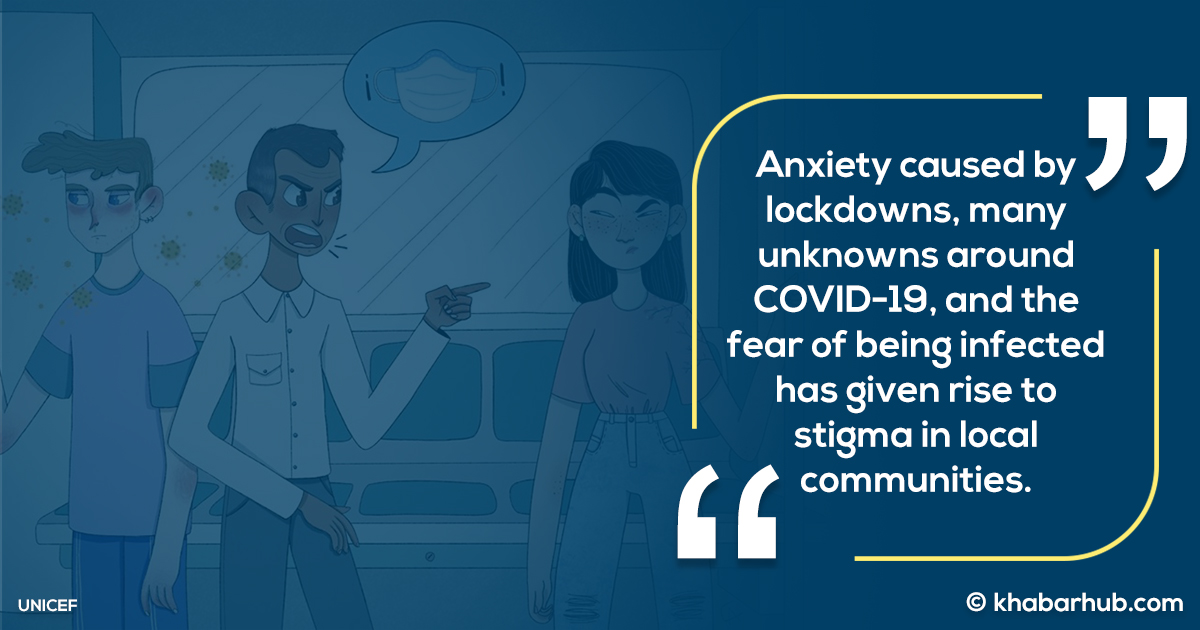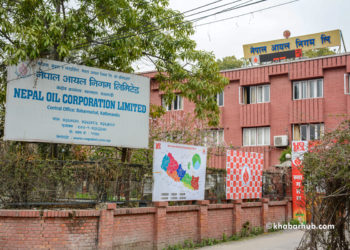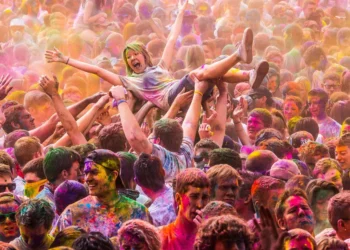It’s been seven months since the first person who had Covid-19 reported in Nepal.
Since then, there have been numerous accounts of stigmatization against returnee migrant workers, health workers, People from different backgrounds, and people infected with Covid-19.
What is Social Stigma?
Social stigma in the context of health is the negative association between a person or group of people who share certain characteristics and a specific disease.
In an outbreak, this may mean people are labelled, stereotyped, discriminated against, and treated separately because of a perceived link with a disease. Such treatment can negatively affect those with the disease, as well as their caregivers, family, friends, and communities.
The current COVID-19 outbreak has provoked social stigma and discriminatory behaviours against people including health workers, as well as anyone perceived to have been in contact with the virus. .Even those who have recovered from COVID-19 face such discrimination.
In Nepal, Incidents have been reported from Sindhuli, Kathmandu, and Dang districts that health care professionals have been forced to leave their rented accommodation due to their profession.
What brings Social Stigma?
There are some factors such as anxiety, fear, confusion, and uncertainty which fuels social stigma and stereotypes to other groups of people.
Anxiety caused by lockdowns, many unknowns around COVID-19, and the fear of being infected has given rise to stigma in local communities.
People’s uncertainty and anxiety have led them to believe biased and vague information provided by traditional media, social media (e.g. Twitter, Facebook, Instagram, etc.).
What are the impacts of Social Stigma?
Stigma can make people feel isolated and even abandoned. They may feel depressed, hurt, and angry when friends and others in their community avoid them for fear of getting COVID-19.
This can result in more severe health problems and difficulties controlling a disease outbreak.
Stigma can:
- Drive people to hide the illness to avoid discrimination
- Prevent people from seeking health care immediately
- Discourage them from adopting healthy behaviours
Four ways to prevent Covid-19 Stigma
Spreading the Facts
Stigma can be heightened by insufficient knowledge about how the new coronavirus disease (COVID-19) is transmitted and treated, and how to prevent infection.
To overcome this, sharing facts, not fear will stop the spread of novel coronavirus (COVID-19). We must share only the authentic information available on the website of the Ministry of Health, Nepal Government, or the World Health Organisation.
Also, we should cross-check any information related to CoVID-19 from reliable sources before forwarding any messages on social media.
Showing Support
We must support health care workers and others who are caring for people with COVID-19 and thank them for their work and share positive messages on social media.
Also, police officers, bus drivers, cleaners and other essential workers need our full support and we must thank all who continue their essential jobs to help us and our community.
Showing Compassion
People who are sick with the coronavirus have done nothing wrong, so let’s not treat them differently. If anybody catches the infection, it is not their fault.
In a situation of distress, the patient and the family need love, support, encouragement, and cooperation. While the governments and front workers are doing their best to go through this emergency, everyone should do the best to spread kindness, solidarity, and support.
People have to be supportive and empathetic to the people involved, not only because it could happen to anyone but because we are part of a huge single-family called humankind.
Raising Awareness
Once we acquire the knowledge and factual information about Covid-19, raising awareness program will be very effective to combat stigma.
Social media will be the best platform to do that where likeminded people can conduct the campaign. #spreadlove, initiated by Unicef Nepal is the best example of a social media campaign against Covid-19 related stigma.
The COVID-19 pandemic will be over sooner if fears and rumours are replaced by facts, proper action, and a show of support for one another. Let’s fight the virus, not the human.
(The writer is an MBA, University of Wales, UK)
(Views expressed in this article are the author’s own and do not necessarily reflect Khabarhub’s editorial stance)









Comment